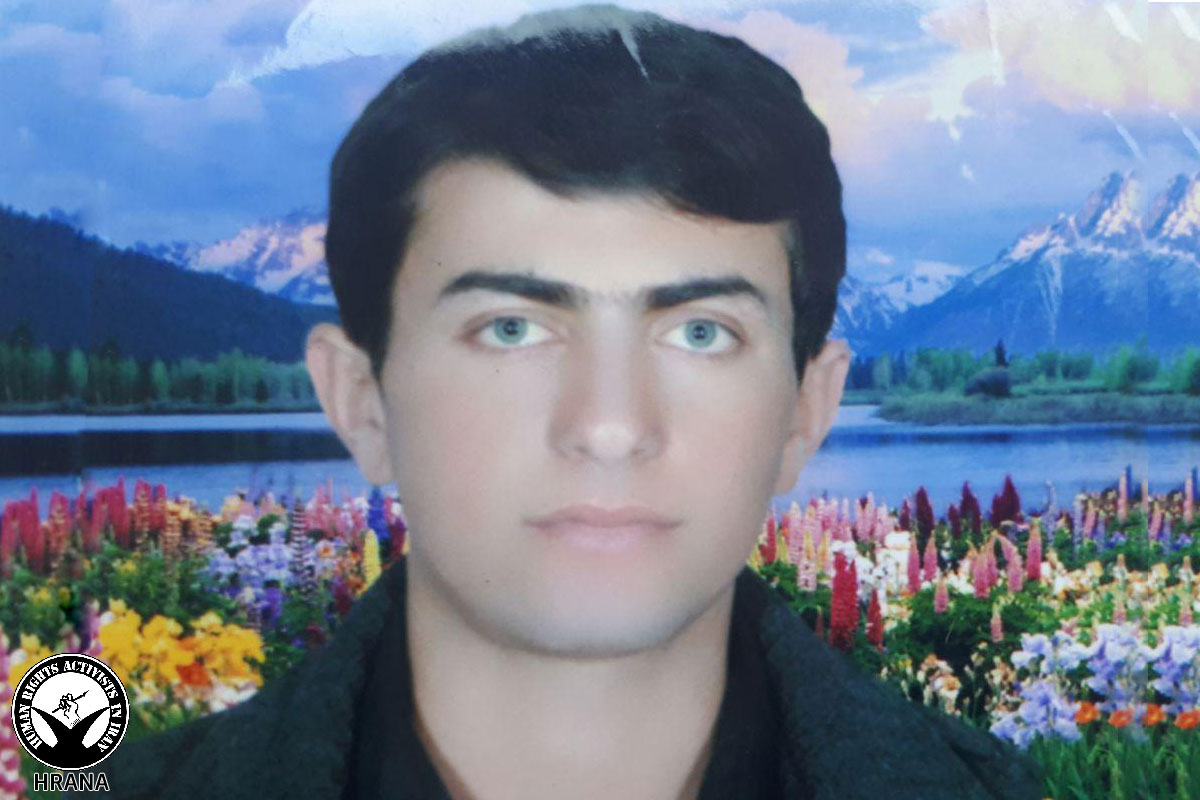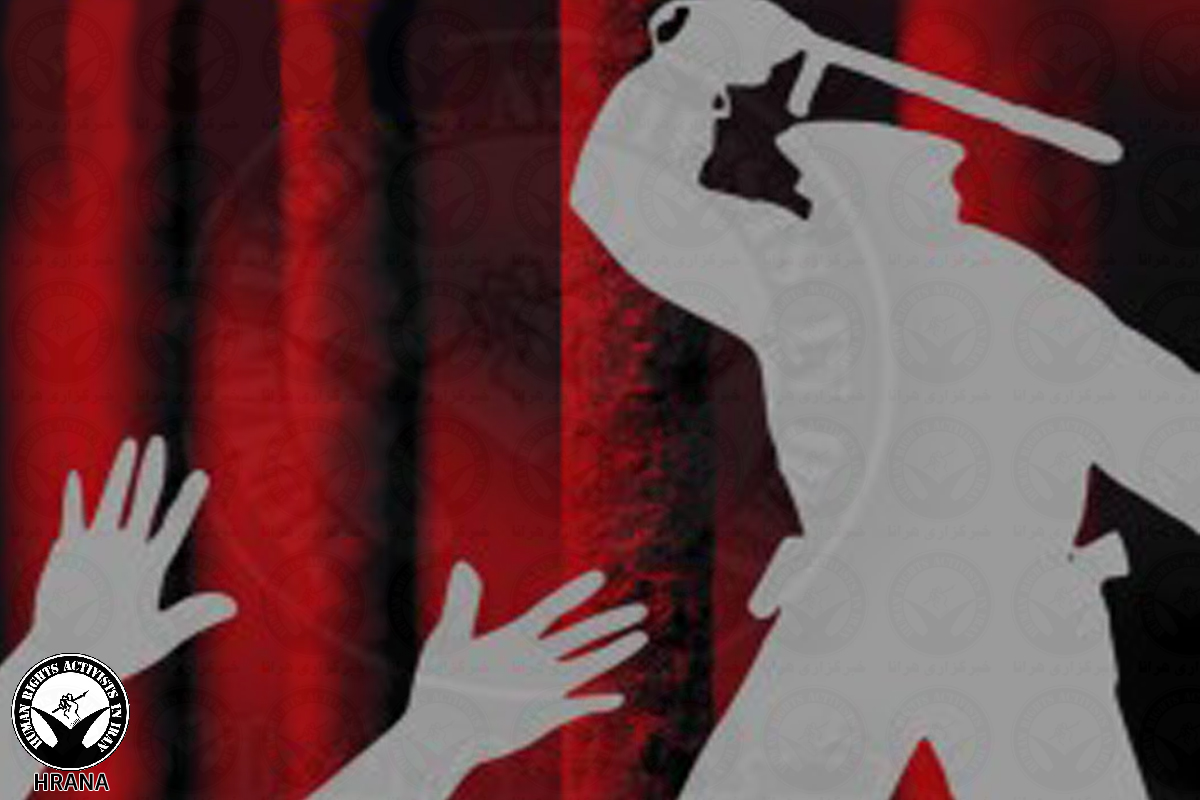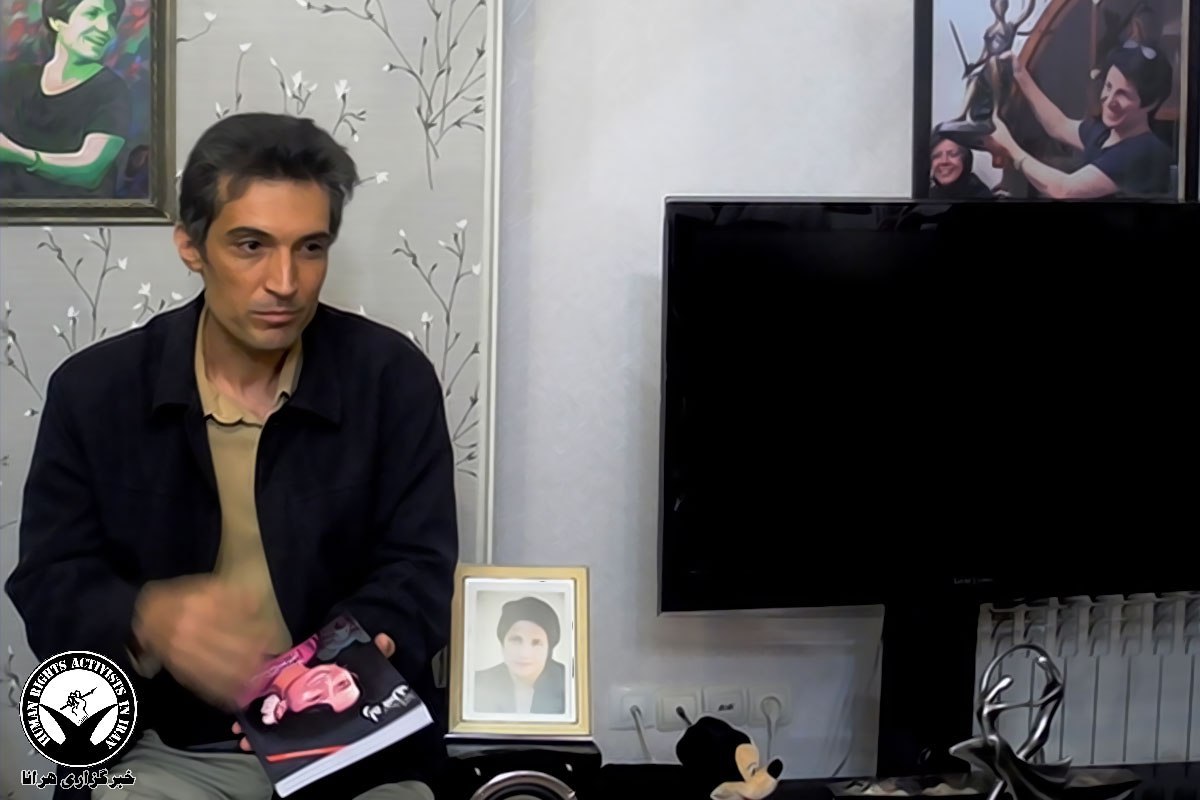Human Rights Activists News Agency (HRANA) – “Loghman’s mother has scratched at her own face so much that she has claw marks across her cheeks,” writes former political prisoner Bahman Ahmadi Amouee, documenting a family’s anguish over the sudden loss of their son Loghman Moradi, who was executed without trial, or any official warning, on Saturday, September 8th. “Her daughter is helping her to stand, and together they are wailing.”
Amouee, a journalist and former political prisoner, writes as a witness to the tightly-controlled visits to the grave sites of Zanyar and Loghman Moradi in Tehran’s Behesht-e Zahra cemetery, where their families were permitted to say final goodbyes on the condition that they refrain from screaming, wailing, or taking any pictures or video.
Pursuant to a dubious legal proceeding that drew outrage from human rights organizations across the world, both Moradi cousins, along with their co-defendant Ramin Hossein Panahi, were hanged to death in an undisclosed location in Tehran Province on Saturday.
Ramin’s brother Amjad reported to HRANA that the victims’ respective families have been threatened with detention by the Ministry of Intelligence. Ramin’s remains will not be handed over to his family for burial, Amjad said, but will instead meet the same fate as that of the Moradis, and of many political prisoners before them: interment by the government in secret location.
In an open letter, Atena Daemi and six other civil activists imprisoned at Evin have expressed condolences to the families of the victims.
Bahman Ahmadi Amouee wrote a report, excerpted above, from his observations of the victims’ grieving families during their final visitation to their graves. The text of Amouee’s letter, sourced from his website, is below, translated to English by HRANA:
“Loghman’s mother has scratched at her own face so much that she has claw marks across her cheeks. Her daughter is helping her to stand, and they are both wailing. She is engulfed in sorrow. I’m in disbelief that this broken girl is Loghman’s little sister. Across the way, her surviving brother hangs his head. They arrived only this morning from Marivan. The family, along with their attorneys, have been treading from room to room in the prosecutor’s office. As if they still cannot believe the news of Loghman and Zanyar’s execution, they say, ‘we won’t believe it until we see the bodies.’ If lore on such matters again proves true, there will be no viewing of the bodies, nor any information released about their burial site. And yet, hope lingers.
At 11 a.m., the family’s attorney Saleh Nikbakht announces that authorities have granted permission for the families to view the bodies in the preparation washroom of the mortuary. I hasten to make my way there. It appears I was faster than everyone else. It is noon, and a few other families are circulating, waiting for their own loved ones’ burials. Sounds of tears and lamentations fill the air. Every few minutes, an intercom pronounces the name of one of the bodies, requesting the family to come forward to identify it.
I asked myself if Zanyar and Loghman would be announced this way. Never would I have imagined coming to find them in a place like this. For two and a half years, we were together day and night. I remember Loghman’s laugh, his wide grin. He was a few years older than Zanyar, and more protective of him than a brother. Each time he would spread out the table cloth for meals, he would call out, ‘Dear Zanyar, come! Let us eat!’
I went to the census bureau of Behesht-e Zahra to see what I could find out. The person behind the computer told me their names weren’t in the system at all. They didn’t figure on the list of those buried in previous days, either. We’re being given the run-around once again, I thought. Distraught, Zanyar’s brother Diyar said, “we got a call from a blocked number–they said we need to go to Behesht-e Zahra.” Loghman and Zanyar’s cellmates are there, too. Everyone we ask says something different. Nikbakht goes into a room. After a few minutes, Diyar goes after him. Four security officers held a meeting with a handful of Behesht-e Zahra administrators; an hour passed. Finally they came out with the news: Zanyar and Loghman’s family members were granted permission to visit their bodies, on the condition that they do not take any pictures or recordings. Oh, and they weren’t going to be allowed to scream or wail when they got there, either.”
Hours go by; Behesht-e Zahra is now closed, all of its employees gone. The large mortuary washroom is so hollow that the slightest sound I’d make would reverberate across the room. I feel empty. I am sitting in a corner, waiting with Zanyar and Loghman’s former cellmates. For a moment, a thought crosses my mind; and if we’re being strung along again…? Loghman’s mother bursts outside, and playing herself on the ground beneath the burning sun. She is cold and racked with trembling, asking over and over to see her dead son.
They summon the immediate family members. We flood through a door. They stop us from advancing further. The windows are cloaked over with banners and cloth.
The families have been standing, choked, over the shrouded bodies of Loghman and Zanyar for half of an hour now. Loghman’s mother was finally able to see her son, covered in a burial cloth. But Zanyar’s mother is not here to do the same. His aunt, uncle, and brother go to see him instead.
A man dressed in a blue suit, his shirt buttoned up to the neck, is ordering people around the room; it seems he’s their boss. Saleh Nikbakht tells him, ‘since they have not been buried yet, won’t you allow us to take them to Loghman’s ancestral village, 25 miles from Marivan? The family has a hard time traveling to Tehran. We ask you to think of them as well.’
The man responds, ‘I have to take it up with the prosecutor. For now, they will stay in the morgue for a few days. If he approves your request, they will be transferred to the location you ask. If not, we will bury them here in Behesht-e Zahra and tell you the location of their grave.’ Wailing and crying burst forth again. The family exits. The summer sun sears into us, and the sounds of crying do not let up. The shrouded bodies are loaded into a pickup truck and taken away. Osman, Loghman’s father, looks defeated. His thin frame is even more haggard than before. He says through sobs, ‘What hurts is that I couldn’t do anything for them.’ Those who had so far been holding back tears are now bawling. Loghman’s sister is clawing at her own face now, howling out tears along with their mother. Their laments shift into Kurdish; all I can understand are the boys’ names.”













